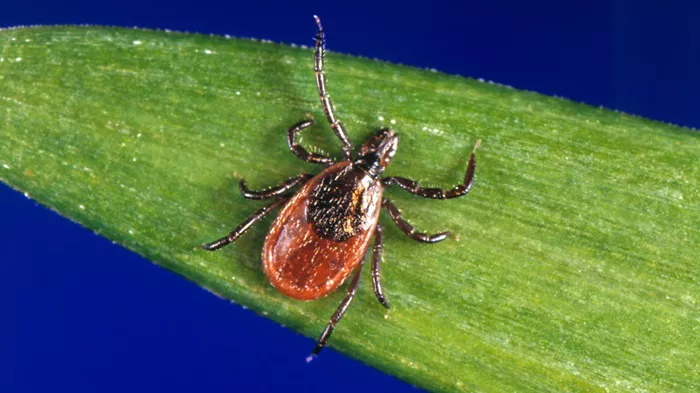Depression is one of the most common and challenging mental health disorders worldwide. It affects millions of people across all ages, cultures, and backgrounds. Despite its prevalence, many people still wonder: what is the basic cause of depression? Understanding the root causes of depression is essential for developing effective treatments and providing the right support to those who suffer from it. In this article, we will explore the complex origins of depression, looking at biological, psychological, and environmental factors. We will also discuss how these elements interact to create the condition we know as depression. By the end, you will have a clearer picture of why depression occurs and why it is far more than just feeling sad.
The Complexity Behind Depression
Depression is not caused by a single factor. Rather, it is a result of a combination of influences that affect the brain and body over time. Some of these causes are genetic, some are related to brain chemistry, while others stem from life experiences or stressful events. This complexity can make depression difficult to understand and treat. Many people mistakenly believe that depression is simply a matter of willpower or a temporary bad mood. In reality, it is a serious medical condition that changes how the brain works and how a person feels emotionally and physically.
Scientists have learned that depression involves changes in the brain’s structure and function. These changes affect areas responsible for mood regulation, thinking, and motivation. For instance, imbalances in certain brain chemicals, called neurotransmitters, play a critical role in depression. Additionally, life events such as trauma, loss, or chronic stress can trigger or worsen depression, especially in people who are already vulnerable due to their biology or family history. Understanding these layers is key to grasping why depression develops.
Biological Causes: The Brain and Genetics
One of the fundamental causes of depression lies in biology. Research shows that depression can run in families, which means genetics plays a role. If someone has a close relative with depression, their risk of developing the condition is higher than average. However, no single “depression gene” has been found. Instead, it appears that multiple genes interact with each other and with environmental factors to increase vulnerability.
At the chemical level, depression is linked to imbalances in neurotransmitters such as serotonin, norepinephrine, and dopamine. These chemicals help transmit signals between nerve cells in the brain and are involved in regulating mood, sleep, appetite, and energy. When the balance of these neurotransmitters is disrupted, it can lead to symptoms of depression like sadness, fatigue, and loss of interest in activities. This discovery has led to the development of antidepressant medications, which aim to restore these chemical balances.
In addition to chemicals, structural changes in the brain have been observed in people with depression. Areas like the hippocampus, which is important for memory and emotion regulation, can shrink in size. The prefrontal cortex, responsible for decision-making and controlling impulses, may also show reduced activity. These brain changes help explain why depression affects both mood and cognitive function, leading to difficulties in thinking clearly or making choices.
Psychological Causes: How Thoughts and Emotions Matter
Beyond biology, psychological factors deeply influence the onset of depression. A person’s thought patterns, self-esteem, and coping skills all contribute to how they experience life’s challenges. Negative thinking styles, such as constantly expecting failure or blaming oneself for problems, can trap someone in a cycle of despair. This way of thinking is often called a “depressive cognitive style.”
People who have experienced childhood trauma, abuse, or neglect are at a higher risk of depression. These early experiences shape how a person views themselves and the world, sometimes leading to deep feelings of worthlessness or hopelessness. Such emotions can create a fertile ground for depression to develop later in life.
Stressful life events like losing a loved one, going through a divorce, or facing financial difficulties can also trigger depression. While these events alone do not cause depression in everyone, they can overwhelm someone’s emotional resources, especially if they lack strong support systems or healthy coping strategies.
Environmental and Social Factors
The environment in which a person lives plays a significant role in depression as well. Social isolation, poverty, discrimination, and ongoing stressors in work or family life can increase the risk. When people lack meaningful connections with others, they may feel lonely and unsupported, which can contribute to feelings of depression.
Chronic medical illnesses such as diabetes, heart disease, or chronic pain often co-occur with depression. The physical burden of these diseases, along with the stress of managing them, can lead to emotional distress. Moreover, some medications used to treat physical illnesses may have side effects that affect mood.
Even factors like poor nutrition, lack of exercise, and insufficient sleep can contribute to depression. The brain and body need proper care to function well, and when these needs are not met, vulnerability to depression increases. This highlights the importance of lifestyle in mental health.
The Role of Stress and the Body’s Response
Stress is a major player in the development of depression. The human body has a natural stress response system designed to handle short-term challenges. However, when stress becomes chronic or overwhelming, it can cause damage to this system and increase the risk of depression.
The hypothalamic-pituitary-adrenal (HPA) axis is a key part of how the body reacts to stress. In people with depression, this system often becomes overactive, producing excessive amounts of cortisol, known as the “stress hormone.” High cortisol levels can negatively affect brain areas involved in mood regulation and memory. Over time, this imbalance may lead to symptoms of depression.
Repeated exposure to stress can also reduce the brain’s ability to form new neurons, a process called neurogenesis, especially in the hippocampus. This reduction in brain plasticity can make recovery from depression harder and contribute to the persistence of symptoms.
Why Depression Is More Than Sadness
It is important to clarify that depression is much more than simply feeling sad or unhappy. While sadness is a natural response to difficult situations, depression is a medical condition that deeply affects how a person feels, thinks, and behaves. It often lasts for weeks, months, or even years without treatment.
People with depression may experience a wide range of symptoms, including loss of interest in hobbies, changes in appetite or sleep, difficulty concentrating, feelings of guilt or worthlessness, and even thoughts of death or suicide. These symptoms can severely impact daily life, relationships, and work.
Because depression involves changes in brain chemistry and structure, it cannot be overcome by willpower alone. It requires understanding, support, and often medical treatment to heal. This is why raising awareness about the basic causes of depression is crucial to reduce stigma and encourage people to seek help.
Conclusion
In summary, the basic cause of depression is not a single factor but a complex interplay of genetic, biological, psychological, and environmental influences. Each person’s experience of depression is unique because these factors combine differently in every individual. Understanding this complexity helps us appreciate why depression is a serious condition that requires compassionate care and effective treatment.
Biological factors like brain chemistry and genetics create a foundation for vulnerability. Psychological patterns and life experiences shape how someone processes emotions and stress. Environmental conditions and social support either protect against or worsen symptoms. Together, these elements explain why depression develops and why it can persist.
By recognizing the multiple causes of depression, we can better support those affected and promote research that leads to new therapies. If you or someone you know is struggling with depression, remember that it is a medical condition—not a personal weakness—and help is available. Early intervention and a combination of treatments often lead to recovery and improved quality of life.
Related Topics



































